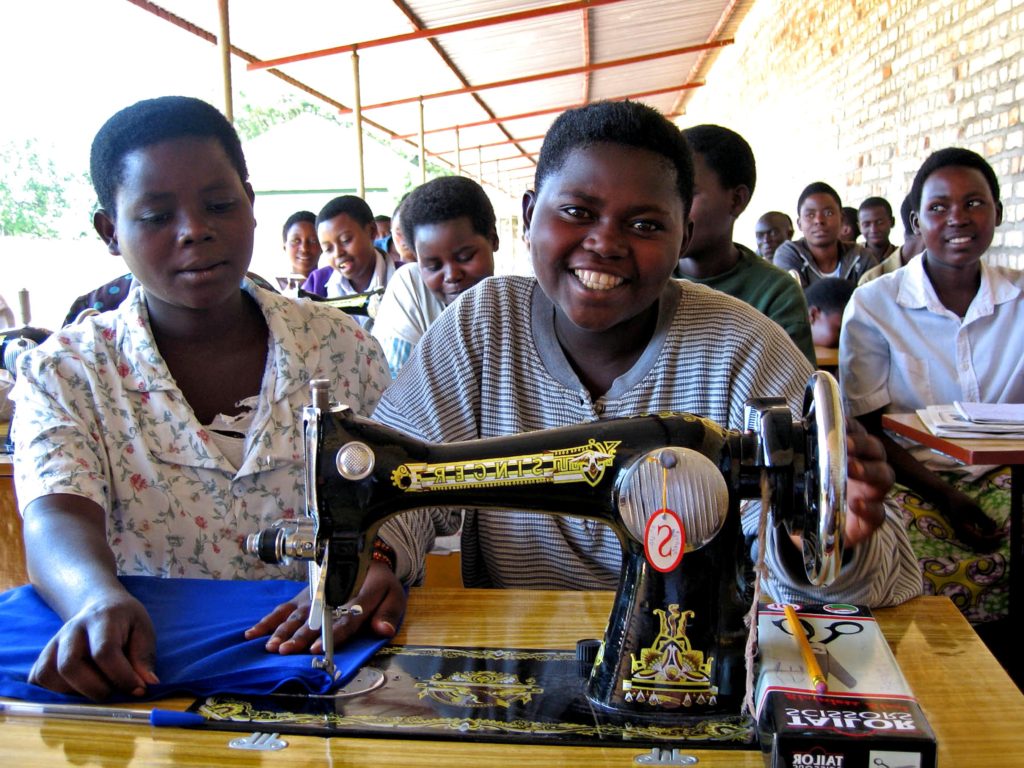As distinct from the previous National Skills Development Strategies, the National Skills Development Plan (NSDP) has been crafted in a policy context of the National Development Plan (NDP) and the White Paper on Post School Education and Training (WP-PSET). There is an explicit acknowledgement that South Africa needs to join hands and minds to generate the solutions to our challenges. The slogan of the NDP emphasises this cooperative paradigm in “Our Future – Make It Work."
The entire post school system has been the focus of a significant and radical improvement in the quality of education and training. The NDP calls for such an improvement in the quality of education and training to enhance the capabilities of our people so that they are active participants in developing the potential of the country. The vision implicit in this is that by growing the economy faster, more people will be drawn into and will create work; thereby raising living standards for all, but particularly of the poor. The NSDP is informed by this vision and proposes that an understanding and determination of the demands of the labour market and of national priorities must be interpreted into appropriate interventions from education and training institutions.
The NSDP and the new SETA Landscape will be ushered in from 1 April 2020. This new dispensation will bring about changes with regards to the leadership and governance in Skills Development. SETAs will remain an authoritative voice of the labour market and experts in their respective sectors. For the country to achieve high levels of economic growth and address unemployment, poverty and inequality, social partners must work together to invest in skills development in order to achieve the vision set in the NSDP of an educated, skilled and capable workforce for South Africa.
Vision of the National Skills Development Plan (NSDP) - ‘An Educated, Skilled and Capable Workforce for South Africa’
Mission of the NSDP - To improve access to occupations in high demand and priority skills aligned to supporting economic growth, employment creation and social development whilst also seeking to address systemic considerations.
Purpose of the NSDP - The NSDP seeks to ensure that South Africa has adequate, appropriate and high quality skills that contribute towards economic growth, employment creation and social development.
Click on the link/s below to open the resources.
Outcomes of the NSDP
Identify and Increase Production of Occupations in High Demanding
The primary aim of determining occupations in high demand is to improve the responsiveness of the post school education and training system to the needs of the economy and to the broader developmental objectives of the country. The national list of occupations in high demand will be compiled and reviewed for every two years, to support planning processes in the post school education and training sector, particularly in relation to enrolment planning, decision making on the prioritisation of resource allocation, qualification development, and career information and advice.
Linking Education and the Workplace
Improving the relationship between education and training and work is a key policy goal of the WP-PSET. This recognises the importance of workplace-based learning in achieving the policy objectives of the post school education and training system. The WP-PSET is unequivocal that the main purpose of TVET is to prepare students for the world of work, a position that is in line with international practice. The OECD’s review of TVET systems in 20 countries concluded that a key feature common to effective TVET systems everywhere is a focus on training for employment. Workplace-based learning is important for the employment prospects of students in the system. The role of SETAs as intermediary bodies is posited as a key factor in linking the world of work and education. Figure 1 below depicts the positioning of skills levy institutions as bodies that seek to link demand with supply. The SETAs can facilitate and broker the linkages between the labour market, employers and sectors with the education and training institutional supply.

Improving the Level of Skills in the South African Workforce
South Africa is challenged by low productivity in the workplace, as well as slow transformation of the labour market and a lack of mobility of the workforce, largely as a result of inadequate, quality assured training for those already in the labour market. The Skills Supply and Demand in South Africa Report (2016), indicates that it is universally recognised that higher levels of educational attainment are associated with better health and wellbeing, higher employment rates, better labour opportunities, and higher earnings. The NGP calls for increased workplace training of workers already in employment in order to improve productivity and the overall growth and development of our economy. To address this challenge, the Mandatory Grant, Discretionary Grant and Administration budgets of the SETAs will be reviewed as SETAs are required to support employed workers.
Increase access to occupationally-directed programmes: The NDP target of 30,000 artisans to be produced annually by 2030 is an indication that South Africa’s intermediate skills base is too low to support the country’s socio-economic development goals. The workforce is also not keeping pace with the skills required to remain competitive in an increasingly knowledge-based economy. To address this, the Quality Council for Trades and Occupations has, since 2012, been developing new occupational qualifications which will become an important part of the offerings in TVET colleges and CET colleges. The new occupational qualifications require some work experience for certification. Although there might be some flexibility in the design of different qualifications, there is no doubt that the system requires better and more systemic arrangements for workplace-based learning in order for the programmes to inspire confidence among employers and to improve employment outcomes for students. Skills levy institutions through their funding will play an important role in supporting the increased production of occupationally directed programmes.
Support the Growth of the Public College Institutional Type as a key Provider of Skills Required for Socio-economic Development
Technical and Vocational Education and Training Colleges: The WP-PSET describes TVET colleges as the cornerstone of the post-school education and training system for South Africa and proposes an expansion of this institutional type to absorb the largest enrolment growth in the post-school system. The NDP also situates TVET colleges as critical pillars of the emerging post-school system and vital for social and economic development. The growth of stronger TVET colleges will expand the provision of mid-level technical and occupational qualifications. These will articulate directly into the world of work for the growing numbers of young people leaving the schooling system.

Community Education and Training Colleges: The NSDP acknowledges the role to be played by the Community Education and Training (CET) institutional type in expanding skills development in the country. The CET colleges will cater for the knowledge and skills needs of the large numbers of adults and youth requiring education and training opportunities, unemployed people, and those employed but in low or semi-skilled occupations.
Skills Development Support for Entrepreneurship and Cooperative Development
The NDP has set the target of 5% for the Gross Domestic Product (GDP) and unemployment reduction to 6% by 2030. This is expected to be achieved through the creation of 11 million jobs, the majority of which are expected to be contributed by small and expanding businesses. Small, Medium and Micro-sized Enterprises are a crucial part of South Africa’s economic growth. Skills levy institutions will actively support skills development needs of entrepreneurs and cooperatives within their sectors, with particular focus on the unemployed, youth, women and people with disabilities.
Encourage and Support Worker Initiated Training
South Africa has a long history of worker education and training that needs to be supported and expanded. Worker‐initiated education and training can contribute to a workforce that is better able to understand the challenges facing the economic sectors in which they operate. Skills levy institutions will play a crucial role in supporting and encouraging worker training initiatives. This will benefit the workplace, our economy, as well as the developmental objectives of our country.
Support Career Development Services
Career development is a key component of the NSDP. For each and every person being able to embrace their full potential, career development is vital. Our entire skills development system must dedicate the required resources to support career and vocational guidance as this has proved to be a critical component in successful skills development initiatives world‐wide. Both the SETAs and the NSF respectively must seek to build career guidance initiatives in their sectors and generally as a key component of the NDSP.
